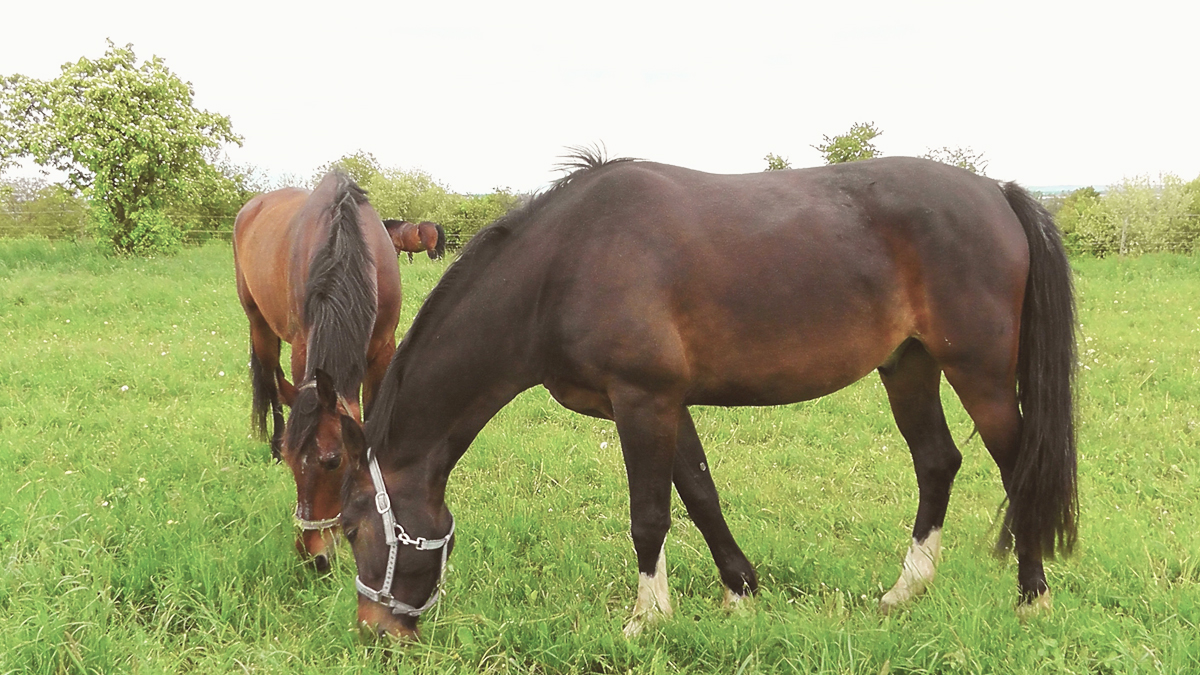Tips to Optimize Your Horse’s Vetting Experience
by Dave Sauter, DVM
 In keeping with the Northwest Horse Source theme for this month— Gifts—we thought it would be appropriate to create a veterinarian “wish list” of things that help us provide the best possible care when on a farm call. One of the goals is to improve safety for everyone involved: the horse, handlers, any bystanders (four-legged and two-legged) and, of course, the veterinarian. Another goal is to improve the efficiency of the visit. This will lead to better outcomes, less stress, and less cost. Finally, we want to promote a positive experience for the horse, or at least a less negative one. This could also help with future visits. These are suggestions and helpful hints. In the real world, with busy schedules, things happen and we are willing to work with whatever the situation demands.
In keeping with the Northwest Horse Source theme for this month— Gifts—we thought it would be appropriate to create a veterinarian “wish list” of things that help us provide the best possible care when on a farm call. One of the goals is to improve safety for everyone involved: the horse, handlers, any bystanders (four-legged and two-legged) and, of course, the veterinarian. Another goal is to improve the efficiency of the visit. This will lead to better outcomes, less stress, and less cost. Finally, we want to promote a positive experience for the horse, or at least a less negative one. This could also help with future visits. These are suggestions and helpful hints. In the real world, with busy schedules, things happen and we are willing to work with whatever the situation demands.
Punctuality. Your first reaction to this might be “Look who’s talking,” as equine veterinarians often seem to be running late due to calls that run over, traffic, emergencies, etc. Every effort to be on time is appreciated. In fact it is even better if the horse is caught and ready ahead of time. Call us if you are running late. Have a cell phone handy so we can contact you if we are running late.
“While you’re here Doc.” Once on the farm, the veterinarian is often asked to do more work beyond what is scheduled (e.g. other problems, more teeth floats, etc.). Generally we will try to accommodate for the additional work and often we will encourage it – it could save us a trip back at a later date. If you know about the additional work, give us a call ahead of time, even just an hour beforehand. That will give us a chance to adjust our schedule to fit in extra time, get additional equipment that might be necessary, etc. If there are other appointments or an emergency we need to get to, it might not be possible.
Cell phone use. If your attention is required to hold the horse, assist the veterinarian, answer questions, provide history, etc., cell phone use during the appointment can be an interference and a safety concern. If you must make a call or answer the phone, warn the veterinarian so the work can stop for a few minutes while you are occupied.
Proper attire – particularly footwear. For example, sandals are not acceptable unless you are not going to be anywhere near the horse(s). Normal barn clothes should be fine.
Bystander control. Big groups of onlookers can be understandable because family and friends want to be helpful and they may find the work very interesting. Onlookers might be welcome but order must be maintained so bystanders do not endanger themselves or anyone else and they do not interfere or get in the way of the work. The focus needs to remain on the horse’s needs. Someone has to be responsible for small children and pets to keep them out of harm’s way and avoid creating an interference.
Share the horse’s history of behavior problems. Some horses react badly to various routine veterinary procedures. Let us know ahead of time if you know the horse is needle-shy, difficult to take its temperature, etc. We can discuss it together and decide how to minimize the conflict and get the job completed safely. Once a conflict has started, adjustments are less effective.
Facility. Veterinarians are adaptable to all sorts of circumstances, but a clean, safe, indoor, well lit work area is always appreciated.
Wounds. If the veterinarian is coming to treat a fresh wound, avoid using any topical medications, especially topical sprays such as Blue Kote that interfere with the evaluation and are difficult to remove. Do clean the wounds if possible and apply pressure to control bleeding.
Questions. It is helpful to write a list of questions to ask at the appointment. This helps to ensure none are forgotten while the veterinarian is there. We are all concerned about what is best for the horse. Toward that end, getting your questions answered is important. Don’t hesitate to call with your questions, especially about whether the horse should be seen.
Published November 2011 Issue

Dave Sauter is a Minnesota native and graduated from the University of Minnesota in 1987. Following graduation he interned at Rood and Riddle Equine Hospital in Lexington, Kentucky. After this internship, he continued to work exclusively with horses for another five years in Kentucky before moving out West and joining Kulshan Veterinary Hospital in Lynden, WA. He is a member of the AAEP, AVMA and the WSVMA. For more information about Kulshan Veterinary Hospital call 360-354-5095 or email drkulshan@msn.com. www.KulshanVet.com

